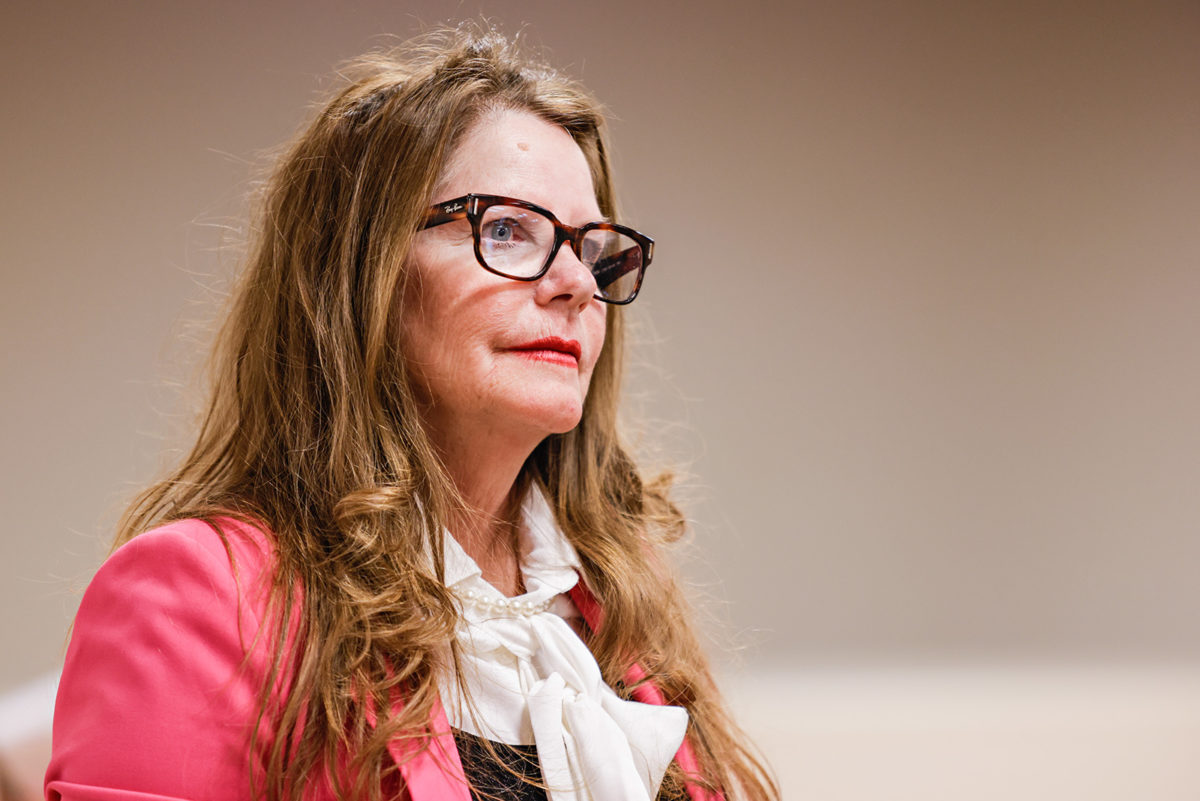Obscenity, Religion in Schools Topics of Second OPI Community Discussion
Legal counsel for the Montana Office of Public Instruction (OPI) on Wednesday presented new laws that allow schools to further restrict materials deemed "obscene" and expand permitted religious activities on school grounds
By Denali Sagner
During the second of four virtual community discussions, representatives from the Montana Office of Public Instruction (OPI) on Wednesday night outlined three new education laws that could impact guidelines for “obscene” materials and religious content in Montana’s public schools.
OPI is in the process of hosting a series the office has dubbed “Local Accountability: How Recent Legislation Affects Families, Students, and Communities,” a set of four Zoom sessions during which Superintendent Elsie Arntzen and the office’s chief legal counsel, Rob Stutz, highlight education legislation passed by the 68th Montana Legislature. Arntzen during both a June “Local Accountability” session on charter schools and the most recent session on obscenity and religious freedom characterized the meetings as open forums and encouraged attendees to ask questions of OPI staff.
Stutz on Wednesday night presented three bills to meeting attendees: House Bill 234, introduced by Rep. Bob Phalen, R-Lindsay, that increases the power of local school boards to regulate obscenity rules; and House Bills 744 and 745, introduced by Rep. Greg Kmetz, R-Miles City, that expand the ability of students and teachers to engage in prayer and religious activities in public schools.
House Bill 234, a controversial law that originally sought to strengthen penalties for educators who provided “obscene” materials to students, was toned down as it moved through the Capitol due to an amendment brought by Sen. Dan Salomon, R-Ronan. In its current form, the bill irons out but does not substantially amend definitions for what types of institutions can be criminally prosecuted for showing obscenity to minors and, most notably, allows school districts to “adopt ordinances, resolutions, or policies that are more restrictive as to the display or dissemination of obscene material to minors than the provisions of this section.”
During the legislative session, the bill garnered support from “parental rights” advocates and conservative lobbyists who painted a picture of Montana children being provided inappropriate and sexual material in schools, with one proponent telling the Senate Education and Cultural Resources Committee during an April hearing that “there needs to be some book burning.”
OPI Director of Family Engagement Jenna McKinney, who helped facilitate the Wednesday night Zoom meeting, also spoke in favor of the bill during the April Senate committee hearing.
Opponents characterized the bill as censorship, and warned that teachers, fearing prosecution, would be driven away from working in Montana schools. Others said that the bill would likely target content pertaining to LGBTQ+ people, noting the efforts by parents to ban books such as “Gender Queer.”

Stutz during the Zoom session emphasized that House Bill 234 does not change the definition of obscenity, nor the penalties for providing obscene material to children, but rather expands the ability for school boards to implement local obscenity policies.
“By and large, nothing was changed. We had an obscenity statute in Montana and there are no changes to most of the bill,” Stutz said.
“At the end of the day the most significant change is that local flexibility that school districts have,” he added.
Stutz also presented on Kmetz’s religion in public schools bills. House Bill 744 amends Montana’s prohibition on religious materials in schools to allow students to initiate or participate “in a conversation about religion, religious beliefs, or religious practices with another student or a teacher.” House Bill 745 amends the same statute to allow students to read “the Bible or other religious material during free reading time” or “self-selected reading,” and states that “prayer is permitted in a school, on school grounds, and at school-sponsored events, but a person may not be compelled to pray” and that “the school day may begin with a prayer.”
Stutz described the bills as an affirmation that “schools cannot discriminate against an individual based on their religion,” and referenced Kennedy v. Bremerton School District, a 2022 U.S. Supreme Court case that classified a football coach’s practice of praying in the middle of the field during each game as protected speech.
“This portion of it appears to be a recognition, like we saw in House Bill 744, that there’s an appropriate time and an appropriate place, even in schools, for conversations about religion. And that extends to the act of praying,” Stutz said.
During both Wednesday night’s Zoom session and the June session on charter schools, attendees pushed back on Stutz and Arntzen, questioning the rationale behind and constitutionality of the bills.
David Saslav, an attendee of the meeting, questioned the need for a rewriting of Montana’s obscenity laws and expressed concern that overregulation of materials considered obscene could lead to encroachments on freedoms of speech and expression.
“The U.S. Supreme Court has been actively trying to dissuade folks from calling things obscene,” Saslav said. He then asked Stutz if Montana lawmakers were attempting to “push the enevelope” on what is considered obscene in order to get a case in front of the Supreme Court.
“I don’t have any sense of that,” Stutz said. “Might it go there? Perhaps.”

A participant speaking in favor of the bill said that she and other parents had attempted to get two books banned from their local public school, one that included an “explicit rape scene” and one that included a number of expletives, but that the local school board voted 3-2 to retain the books.
Saslav and Sharon Patton-Griffen, an attendee who identified herself as a teacher of 43 years, also questioned the expansion of religious activity in schools as outlined by the new legislation.
After Stutz repeatedly referenced the Kennedy v. Bremerton case, Patton-Griffen said that the ruling “broke precedent and it is in complete contradiction with the Establishment Clause of our First Amendment.”
Stutz told Patton-Griffen that she should “talk with [her] own attorney about the application of the Lemon Test,” a three-part test created by the U.S. Supreme Court in 1971 that creates guidelines for when an action violates the Establishment Clause.
The tense exchanges between OPI representatives and meeting participants reflected a legislative session marked by controversial, high-profile education bills that saw teachers and public education advocates facing off against parental rights groups and conservative lobbyists at a number of junctures. Bills regarding public funding for charter schools, obscenity, parental notification requirements and protections for LGBTQ+ students garnered long public hearings and marked some of the most contentious fights during a markedly contentious session.
OPI will host two more “Local Accountability” sessions this summer — an Aug. 23 session on the Special Needs Opportunity Act (House Bill 393) and a Sept. 20 session on two “parental rights” bills, House Bill 676 and Senate Bill 518.